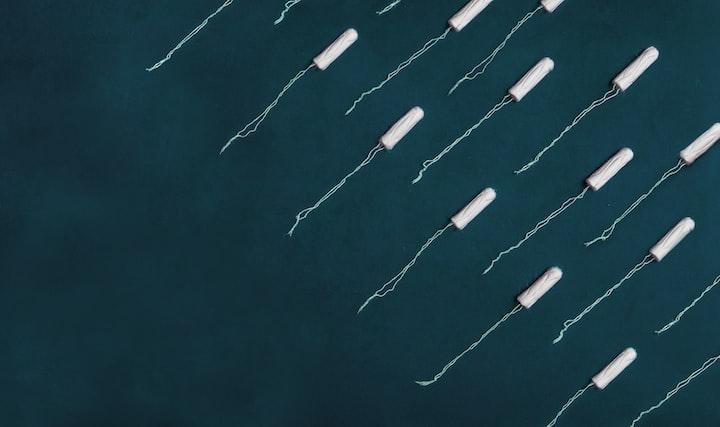There are a few reasons why you might experience spotting 2 days before your period. One reason could be that you are ovulating. When you ovulate, your body releases an egg from your ovary and it travel down your fallopian tube. This can sometimes cause light spotting. Another reason for spotting could be implantation bleeding, which occurs when a fertilized egg implants itself into the lining of the uterus. This can also cause light spotting or bleeding. Finally, hormonal changes can also cause spotting 2 days before your period. If your hormones are off balance, it can lead to irregular periods and spotty bleeding.
1. The science of spotting
what causes it and how is it different from a regular period?
2. The emotional rollercoaster of spotting: the disappointment, frustration, and sometimes even relief that can come with this seemingly unpredictable bodily function.
3. What to do when you spot: from over-the-counter treatments to home remedies, there are plenty of options for combating spotting. But what’s most important is listening to your body and giving yourself the care and attention you need during this time.
2. Why some women spot before their period
There are a few reasons why some women spot before their period. One possibility is that the spotting is due to implantation bleeding, which can happen when a fertilized egg implants itself into the uterine lining. This type of bleeding is usually lighter than a regular period and may occur a week or two before your next period is due.
Another possibility is that the spotting is caused by low levels of progesterone, which can cause the uterine lining to break down and bleed slightly. This can happen in the days leading up to your period or around the time of ovulation.
If you’re concerned about any spotting you’re experiencing, it’s always best to check with your doctor to rule out any other potential causes (such as an infection). However, in most cases, spotting before your period is nothing to worry about and simply indicates that your menstrual cycle is starting up again after a hiatus.
3. When to worry about spotting
If you experience spotting that is accompanied by other concerning symptoms like severe abdominal pain, dizziness, or faintness, it’s important to see a doctor right away. These could be signs of an ectopic pregnancy or another serious condition.
If you’re not sure whether your spotting is normal or something to worry about, it’s always best to check in with your doctor. They can help you determine the cause of your bleeding and whether you need any further treatment.
4. Spotting vs. bleeding: What’s the difference?
Spotting and bleeding are both types of vaginal discharge, but they have different characteristics. Spotting is typically lighter in color and consistency than bleeding, and it doesn’t involve as much blood loss. Bleeding, on the other hand, is usually heavier and darker in color, and it can involve significant blood loss.
There are a number of reasons why someone might experience spotting or bleeding before their period. Hormonal imbalances are often to blame, as they can cause changes in the lining of the uterus which can lead to light spotting or bleeding. Other potential causes include infection, polyps or fibroids in the uterus, or even early pregnancy (implantation bleed).
If you’re experiencing any type of vaginal bleeding outside of your normal period cycle, it’s important to see a healthcare provider to rule out any serious underlying causes.
5. How to deal with spotting before your period
If you’re spotting before your period, there are a few things you can do to ease your discomfort and manage the situation. First, it’s important to understand that spotting is normal and usually nothing to be concerned about. If you’re concerned about your health, however, speak with your doctor.
There are a few simple things you can do to help deal with spotting before your period:
1. Use a panty liner or light pad. This will help absorb any blood and keep everything clean. Be sure to change them regularly.
2. Wear loose-fitting clothing. This will help prevent irritation and chafing from tight clothes rubbing against the area.
6. Tips for avoiding spots before your period
There are a few things you can do to try and avoid getting spots before your period. First, try to keep your stress levels down. Stress can cause an increase in hormone production, which can lead to more breakouts. Secondly, make sure you’re washing your face twice a day with a gentle cleanser. This will help remove any dirt or oil that could clog your pores and lead to breakouts. Finally, try using a spot treatment on any areas that tend to breakout before your period starts.
7. Home remedies for spots before your period
If you’re prone to getting spots before your period, there are a few things you can do to try and minimise them. Firstly, make sure you’re cleansing your face twice a day with a gentle cleanser. Exfoliating once or twice a week can also help to unclog pores and prevent spots from forming.
Try using a spot-targeting treatment like tea tree oil or salicylic acid gel as soon as you feel a spot forming. These ingredients can help to dry out the spot and stop it from getting worse. And lastly, make sure you’re drinking plenty of water and eating lots of fruit and vegetables – staying hydrated and eating well will help to keep your skin looking its best.
